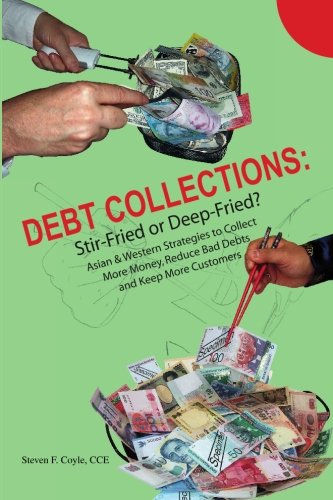[Western] Videos
INFLUENCE OF FINANCIAL INTERMEDIATION INSTITUTES ON THE WELFARE OF THE POPULATION IN THE WESTERN EUROPEAN COUNTRIES
Karen Turyan, National Polytechnic University of Armenia, Armenia
(Presented at the International Conference on Research in Education and Science (ICRES) which took place on April 27-30, 2024, in Antalya, TURKEY (https://www.2024.icres.net/) and at the International Conference on Education in Mathematics, Science and Technology (ICEMST) (https://www.2024.icemst.com/) organized by the International Society for Technology, Education and Science (ISTES) http://www.istes.org).
Throughout the history of the origination and development of the economy, financial intermediation has served to reduce transaction costs, which has had a stimulating effect on the economic system. On the other hand, financial intermediation at certain stages, replacing the real sector of the economy, could cause economic crises, unjustifiably inflating the money supply. The period after World War II was a period of prosperity and development of the economies of Western Europe. The struggle and unity of opposites, which manifests itself in the synergy of capitalism and social justice, leads to the formation of a new society. All the difficulties of this period undoubtedly affected the well-being of the population. In such difficult conditions, financial intermediation could play an important role in developing the economic potential of Western European countries. Was this really the case? The article makes an attempt to find an answer to this particular question. The purpose of this study: – to determine the impact of the financial intermediation institutions on the well-being of the population in Western European countries. We use the methodology of chrono-discrete monogeographic comparative analysis proposed by Demichev (2019) for legal institutions.
In this innovative legal history of economic life in the Western Indian Ocean, Bishara examines the transformations of Islamic law and Islamicate commercial practices during the emergence of modern capitalism in the region. In this time of expanding commercial activity, a mélange of Arab, Indian, Swahili and Baloch merchants, planters, jurists, judges, soldiers and seamen forged the frontiers of a shared world. The interlinked worlds of trade and politics that these actors created, the shared commercial grammars and institutions that they developed and the spatial and socio-economic mobilities they engaged in endured until at least the middle of the twentieth century. This major study examines the Indian Ocean from Oman to India and East Africa over an extended period of time, drawing together the histories of commerce, law and empire in a sophisticated, original and richly textured history of capitalism in the Islamic world.
The DEBT: a 4-part novella series based on Cowboy, ex-soldier, Matt Stone, all in one book together! Matt Stone rode into Markleeville one hot dusk, with a wind at his back that promised summer thunder. He was tall and lean, with a narrow, clean-shaven face above the collar of his oilskin duster. His eyes were a hard pale blue, like chips of ice, and his black hair was long like an Apache’s and held back with a strip of leather. The coat was open, revealing a buckskin vest and the pair of silver Colts at his hips. He rode a huge, sleek black horse with a bullet scar showing in white hairs across one flank. Its name was Lucky. That horse had carried him through Gettysburg alive, and then taken him west, where he’d spent three years wandering, trying to get the echoes of battle out of his head. Matt managed to escape death in Gettysburg and just when he begins to believe he has something good with Anne, destiny takes a shot and sends everything spinning out of control.
Why do lenders time and again loan money to sovereign borrowers who promptly go bankrupt? When can this type of lending work? As the United States and many European nations struggle with mountains of debt, historical precedents can offer valuable insights. Lending to the Borrower from Hell looks at one famous case–the debts and defaults of Philip II of Spain. Ruling over one of the largest and most powerful empires in history, King Philip defaulted four times. Yet he never lost access to capital markets and could borrow again within a year or two of each default. Exploring the shrewd reasoning of the lenders who continued to offer money, Mauricio Drelichman and Hans-Joachim Voth analyze the lessons from this important historical example.
Using detailed new evidence collected from sixteenth-century archives, Drelichman and Voth examine the incentives and returns of lenders. They provide powerful evidence that in the right situations, lenders not only survive despite defaults–they thrive. Drelichman and Voth also demonstrate that debt markets cope well, despite massive fluctuations in expenditure and revenue, when lending functions like insurance. The authors unearth unique sixteenth-century loan contracts that offered highly effective risk sharing between the king and his lenders, with payment obligations reduced in bad times.
A fascinating story of finance and empire, Lending to the Borrower from Hell offers an intelligent model for keeping economies safe in times of sovereign debt crises and defaults.
A practical business cookbook on how to creatively collect debts from overdue customers using Asian and Western collection strategies. The author is an American living in Asia since 1995. Accounts receivables are most firms largest asset, and often it’s most unmanageable. This book shares ideas to improve your firm’s processes, people, and systems to reduce bad debts and increase sales and profits. A humorous, ‘how to’ book to put more money in your firm’s pocket while keeping you up-to-date in the field.





